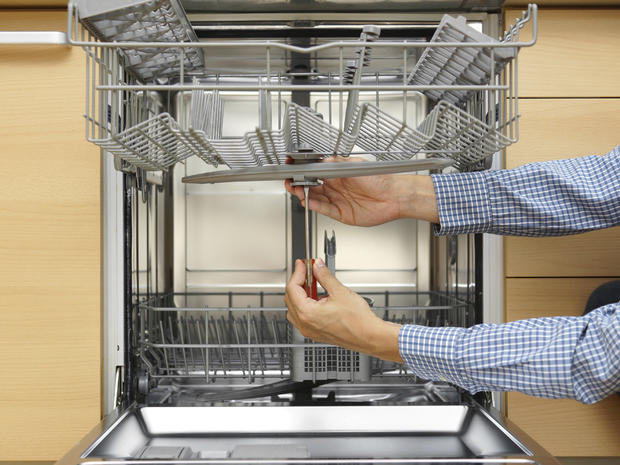The 9 best jobs for people without a college degree
With the cost of a college degree shooting into nose-bleed territory, more families and students are debating the trade-offs of enrolling in a four-year program.
While some fear that failing to earn a college diploma will lead to a life of fast-food work or another low-paid occupation, that's not exactly the case, according to a new study from CareerCast. With foresight and planning, workers who lack college degrees can have a successful career with middle-class incomes.
With student loan debt now at $1.2 trillion, that's sparked a debate about whether young Americans are taking on too much indebtedness for a college diploma. While the upside to earning a college degree is well documented, with young college grads earning about 50 percent more than peers with only high school educations, not everyone is able to afford college tuition. Others may opt against college because they don't want to be saddled with debt, while some might feel it's not the right fit.
"Student loan debt in the U.S. is the second-highest debt after home loan debt," Tony Lee, the publisher of CareerCast, told CBS MoneyWatch. "There are people who for financial or ethical reasons don't want to go to college. You can still have a very productive career with very respectable earnings if you don't have a four-year degree."
Many of the jobs do require additional training, however. For instance, people who want to become an electrician, which is one of the jobs on the list, typically go through an apprentice, while some may attend a technical school. Some of the jobs also require licensing, while others may require an associates degree or some technical training.
Read on to learn about nine top jobs for people who lack a college degree.
9. Appliance repairer: $43,640
This growing field includes people who work on heating, air conditioning and refrigeration mechanics and installers, according to the Bureau of Labor Statistics. The median annual pay is $43,640, or $20.98 an hour.
One early step that high school students can take is enrolling in physics, math and shop classes, according to the BLS. After earning their high school degree, students should be prepared to enroll in a technical or trade school, given that HVAC systems are increasingly complex and employers often want to see those qualifications. The programs can require between six months to two years of study.
Like most of the other jobs in the CareerCast study, the field is growing, with the Labor Department estimating that employment will grow by 21 percent from 2012 to 2022, or faster than the 11 percent growth across all occupations.
8. Paralegal assistant: $46,990
Paralegals help support lawyers by preparing legal documents, filing and performing administrative work, and conducting legal research. The median annual pay is $46,990, or $22.59 per hour.
While some paralegals have bachelor's degree, some law firms hire people without legal experience and then train them. Most paralegals have either an associate's degree or a certificate in paralegal studies, according to the Bureau of Labor Statistics.
The job outlook for paralegals is strong, with employment projected to grow by 17 percent through 2022, or faster than the average across all occupations.
7. Computer service technician: $48,900
People in this profession help customers and organizations use software and equipment, so computer knowledge is essential, although a bachelor's degree is not. Employers will hire people who have taken computer-related classes, while some seek out applicants with associate's degrees or prefer those with bachelor's degrees.
The annual median pay is $48,900, or about $23.51 per hour. The job outlook is strong, with the Bureau of Labor Statistics projecting employment will grow 17 percent through 2022.
One potential hitch for some might be the demanding hours, given that businesses often need help at odd times, which means that many technicians need to be on call 24 hours a day.
6. Electrician: $49,840
While workers don't need college degrees to become electricians, training is considered essential given the high-stakes nature of this job. Most electricians start off by attending a technical school, and then learn the trade during an apprenticeship program that can take as long as five years. Most U.S. states also require electricians to become licensed.
The median annual pay is $49,840, or $23.96 an hour, and the job outlook is strong, given that the Bureau of Labor Statistics expects employment to expand by 20 percent through 2022.
The downside for the profession is the potential for bodily harm, given that electricians have a higher rate of accidents and injuries than other professions.
5. Respiratory therapist: $55,870
Respiratory therapists help patients who have trouble breathing, such as people who are suffering from emphysema. Many work in medical facilities such as hospitals, while some make house visits.
While a college degree isn't necessary, respiratory therapists typically have an associate's degree. They are also licensed in all U.S. states except for Alaska.
The annual median pay is $55,870 per year, or about $26.86 per hour, while the job outlook is strong, with the Bureau of Labor Statistics projecting employment to expand by 19 percent through 2022.
4. Multimedia artist: $61,370
Multimedia artists create animation and visual effects for media outlets. While the Labor Department says that most in the field have bachelor's degrees, CareerCast notes that it's not necessary. Still, training in computer animation or graphics or a related field is important.
The median annual pay is $61,370, or about $29.50 per hour. The job doesn't have the same type of growth prospects as the other professions on this list, however. The Bureau of Labor Statistics projects the field will grow by 6 percent by 2022, or lower than the 11 percent for all U.S. occupations.
3. Web developer: $62,500
Web developers design and create websites, but talent and coding knowledge is more important than a college degree. Some web developers get started even as early as high school, given the demand for these workers and the types of skills that are needed.
Still, web developers typically have at least an associate's degree in web design or a related field, while employers want to see an excellent knowledge of HTML and coding. Graphic design experience is also a plus.
The annual median pay for the profession is $62,500, or an hourly rate of $30.05. The job outlook is strong, with the Bureau of Labor Statistics projecting that employment will expand by 20 percent through 2022.
2. Registered nurse: $65,470
Becoming a registered nurse requires an associate's degree in nursing or a diploma from an approved nursing program. Some have a bachelor's of science degree in nursing, as well.
RNs earn median annual pay of $65,470, or $31.48 per hour. With the aging American population, demand for RNs is expected to grow 19 percent through 2022, or faster than the 11 percent growth for all occupations.
While RNs earn a good living, there are risks that come with the job, such as injuries from moving patients or coming in contact with patients with infectious diseases. Nurses can also have odd hours, given the need for round-the-clock care of patients in hospitals and other medical facilities.
1. Dental hygienist: $70,210
Becoming a dental hygienist typically requires an associate's degree in dental hygiene, although high school students can prepare for the career by taking courses in biology, chemistry and mathematics.
Every state requires hygienists to be licensed, so passing written and practical licensing exams is also essential.
Annual median pay is $70,210, or about $33.75 per hour. The job outlook is strong, with the Bureau of Labor Statistics forecasting the profession will expand by 33 percent by 2022. With more people gaining dental insurance and an aging population needing to maintain their original teeth, that will drive employment in the profession, according to the BLS.
About half of dental hygienists work part time, while some work for more than one dentist given that dentists sometimes only hire them for a few days per week. Aside from training, one important quality is compassion, given patients often have fears about visiting the dentist.









